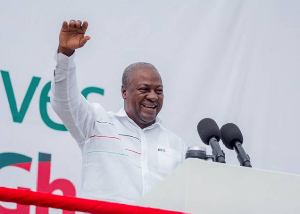
Ghana's 2024 general election, held on December 7, resulted in the election of former President John Dramani Mahama, who secured 56.5% of the vote, defeating Vice President Mahamudu Bawumia, who garnered 41%. Voter turnout was reported at approximately 60%.
Check out this insightful discussion Ghana's 2024 Election: John Mahama's Victory and what it means for Ghana
Mahama's victory marks a significant political comeback, as he previously served as Ghana's president from 2012 to 2017. His campaign focused on addressing the country's economic challenges, which resonated with a populace experiencing a severe cost-of-living crisis. In his victory speech, Mahama emphasized the need to meet citizens' basic needs, including affordable housing, healthcare, and fair wages, and pledged to "reset" the nation's economy.
The election was conducted peacefully, with international observers, including the Economic Community of West African States (ECOWAS), commending the process. Vice President Bawumia conceded defeat promptly, a move that reinforced Ghana's reputation for democratic stability.
This election underscores a recurring theme in Ghanaian politics: the electorate's willingness to hold incumbents accountable, particularly during economic downturns. Similar to past elections, voters demonstrated their readiness to seek change when dissatisfied with the current administration's performance. This pattern highlights the maturity of Ghana's democracy, where power transitions occur smoothly, and leaders are responsive to the electorate's concerns.
In summary, the 2024 election not only reaffirmed Ghana's commitment to democratic principles but also highlighted the critical role of economic issues in shaping electoral outcomes. The peaceful transition of power and the electorate's demand for effective governance continue to strengthen Ghana's democratic institutions.